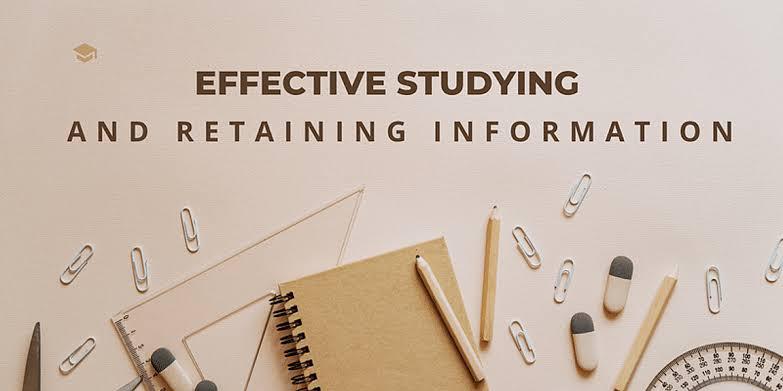10 Effective Study Tips to Boost Academic Performance
By Nnachetam Calista Chinonye
When students fail exams, it's often because they overlook crucial factors in their exam preparation and neglect to adopt effective study methods. To help you excel in your exams, we've compiled a list of ten proven tips to study effectively and improve your overall academic performance.
1. Study in Manageable Intervals: Contrary to the belief that marathon study sessions are best, breaking up your study time into manageable intervals is more effective. Try the Pomodoro Technique—study for 25 minutes, then take a 5-minute break. This approach enhances information retention and keeps your mind sharp and focused.
2. Visualize Concepts with Mind Maps: To understand complex topics better, create mind maps that visually represent how different subjects are interconnected. Identify common concepts and use similarities to relate new material to existing knowledge. This method enhances comprehension and aids in retaining information.
3. Set Up a Consistent Study Timetable: Develop a structured study schedule with designated study times throughout the week. Consistency allows your brain to recognize the pattern and be more receptive to absorbing new information. Moreover, it helps you stay on track, identify areas for improvement, and allocate focused study sessions accordingly.
4. Harness the Power of Flash Cards: Flash cards are versatile study tools with numerous benefits. Use them to review information quickly and engage both kinesthetic and visual memory, facilitating easier memorization. Create flash cards for various subjects and study at your own pace.
5. Set Specific Goals for Each Study Session: Rather than attempting to learn too much at once, focus on mastering one concept or topic during each study session. Setting specific goals enhances your confidence in the subject matter, improves retention, and instills a sense of accomplishment as you achieve each objective.
6. Teach Others to Solidify Your Understanding: Teaching or explaining a topic to someone else deepens your own understanding. This process prompts you to think about the subject matter more critically and identify any knowledge gaps. Embrace opportunities to tutor classmates or participate in study groups to benefit from this powerful learning technique.
7. Create a Conducive Study Environment: Your study environment significantly impacts your academic performance. Select a comfortable, well-lit, and quiet space—whether it's a coffee shop, library, or your room. A conducive environment reduces stress and distractions, leading to improved focus and productivity during study sessions.
8. Utilize Acronyms and Mnemonics: Acronyms and mnemonics are invaluable tools for effective studying. Use acronyms (abbreviations formed from the initial letters of words) and mnemonics (patterns of letters, ideas, or associations) to simplify complex information. These aids enhance memory recall and save time and effort in memorization.
9. Minimize Distractions: Cell phones and other gadgets can be major distractions during study time. To stay focused, put away your phone and other distractions, or consider setting a timer to dedicate uninterrupted study periods.
10. Review and Reflect Regularly: Regularly reviewing and reflecting on your study material reinforces learning. Periodically revisit notes, flash cards, and mind maps to keep the information fresh in your mind. Reflect on what you've learned and identify areas that require further attention.
By incorporating these ten effective study tips into your routine, you can elevate your academic performance and excel in exams. Study smarter, stay organized, and create an optimal study environment to enhance your overall learning experience. Remember, consistent effort and a disciplined approach to studying are key to achieving academic success.

Nnachetam Calista Chinonye
is a student of English and Literary Studies
at the University of Nigeria, Nsukka.
She is a book lover with keen interest in how stories shape the world.





